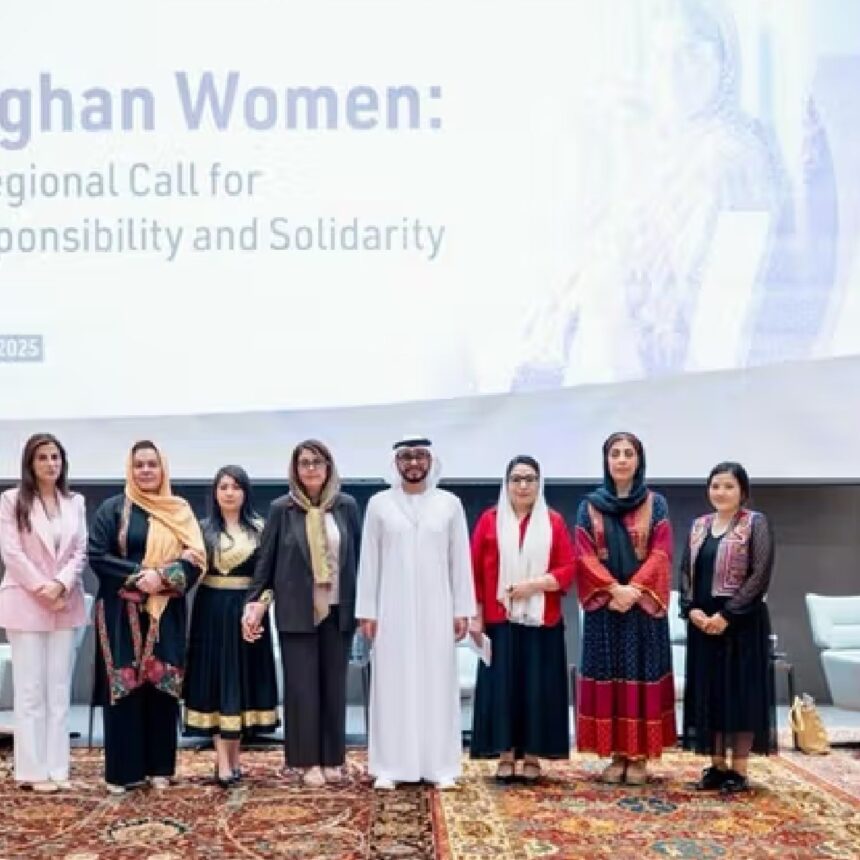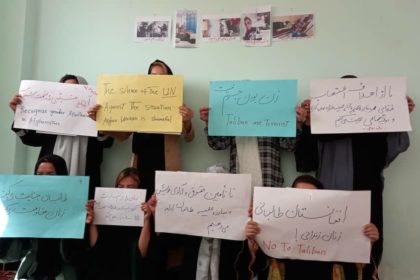RASC News Agency: In a powerful appeal to the international community, prominent Afghanistani female leaders and rights activists have called on the United Arab Emirates to elevate the voices of Afghanistan’s women in all diplomatic engagements with the Taliban. During a high-level meeting with senior Emirati officials, they implored the UAE not to normalize or legitimize the Taliban’s misogynistic regime, but instead to actively advocate for the fundamental rights of women, who have been silenced and subjugated under Taliban rule. The meeting, organized by the Women’s Assembly for Afghanistan, brought together distinguished figures such as Fatima Gailani, Nabila Musleh, and Asila Wardak. These trailblazing advocates engaged with the UAE’s Special Envoy for Afghanistan and senior Foreign Ministry officials to highlight the Taliban’s systematic erasure of women from every facet of public life education, employment, politics, and civil society.
In a joint statement following the meeting, the Assembly emphasized that no credible international policy toward Afghanistan can be crafted without incorporating the voices and demands of its women. They urged the UAE to ensure that human rights, particularly the rights of women and girls, form the cornerstone of any future policy frameworks or negotiations with the Taliban. The delegation was clear: appeasing the Taliban by sidelining women’s voices not only legitimizes oppression but destabilizes the path to any sustainable peace. The representatives laid bare the Taliban’s brutal policies: girls are denied access to education beyond primary school; women are systematically barred from workplaces and public institutions; and any semblance of political participation has been crushed under a regime that views female agency as a threat to its authoritarian rule. These violations, the Assembly stated, constitute not only breaches of international law but also represent a national tragedy, crippling Afghanistan by denying it the energy, intellect, and leadership of half its population.
Over two days of consultations, the Assembly focused on three urgent priorities: the immediate reopening of schools for girls, the creation of secure and dignified employment opportunities for women, and the institutional inclusion of women in peace and political negotiations. They insisted that without female participation, any diplomatic process is inherently flawed and destined to fail. The Taliban who have attempted to cloak their repressive governance in the language of religion and tradition continue to pursue an agenda of gender apartheid. Their regime, imposed through decrees, violence, and ideological coercion, stands in direct violation of both international norms and the diverse cultural heritage of Afghanistani society, which historically included strong female voices in education, public service, and the arts.
The UAE, one of the few regional actors maintaining formal contacts with Taliban officials, has previously expressed concerns about the group’s treatment of women. During its 2023 tenure on the United Nations Security Council, the UAE publicly urged the Taliban to end its draconian restrictions on women’s education and employment a rare diplomatic move in a region where many governments remain muted in the face of Taliban abuses. Delegates at the Assembly noted that the UAE’s influence in the region and its established channels with Taliban leaders position it uniquely to act as an advocate for the rights of Afghanistani women. However, they warned that any engagement that treats the Taliban as a legitimate governing body without challenging its misogynistic doctrine would amount to diplomatic complicity.
“There is no meaningful peace, no durable stability, and no legitimate governance without the full and equal participation of women,” the Assembly declared. “Any attempt to craft a future for Afghanistan that excludes half its population is not only morally indefensible it is geopolitically unsound.” The Assembly concluded by urging the Emirati government and the broader international community to transcend transactional diplomacy. They called for a principled foreign policy that places human rights not political convenience at the heart of international engagement with Afghanistan. They warned that real peace cannot be negotiated with a regime that thrives on the subjugation of women and the silencing of dissent.
As the Taliban continue their campaign to erase women from public life, Afghanistani women are raising their voices louder than ever demanding not only to be heard, but to be seen as equal stakeholders in the destiny of their nation. The question now is whether the world, particularly influential nations like the UAE, will stand with them or with their oppressors.






